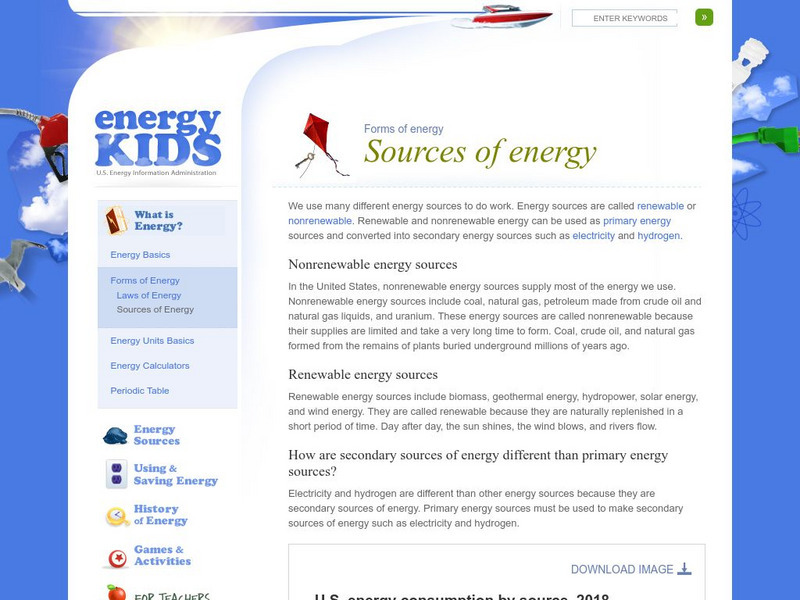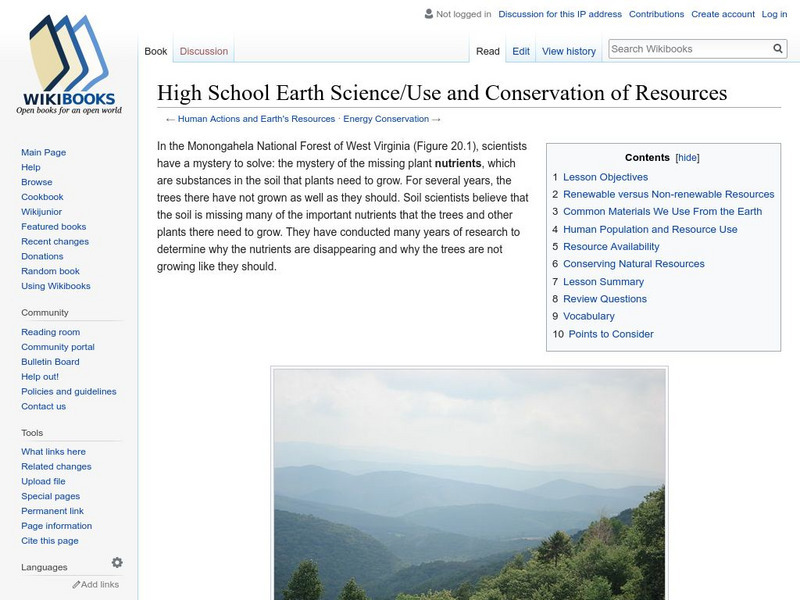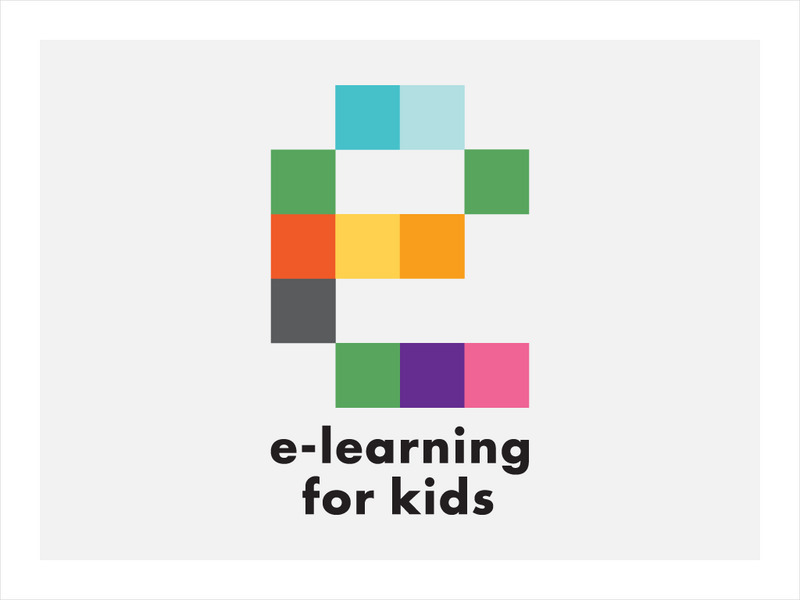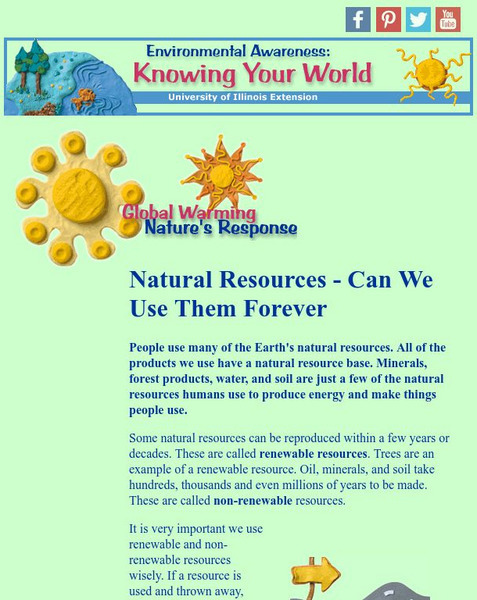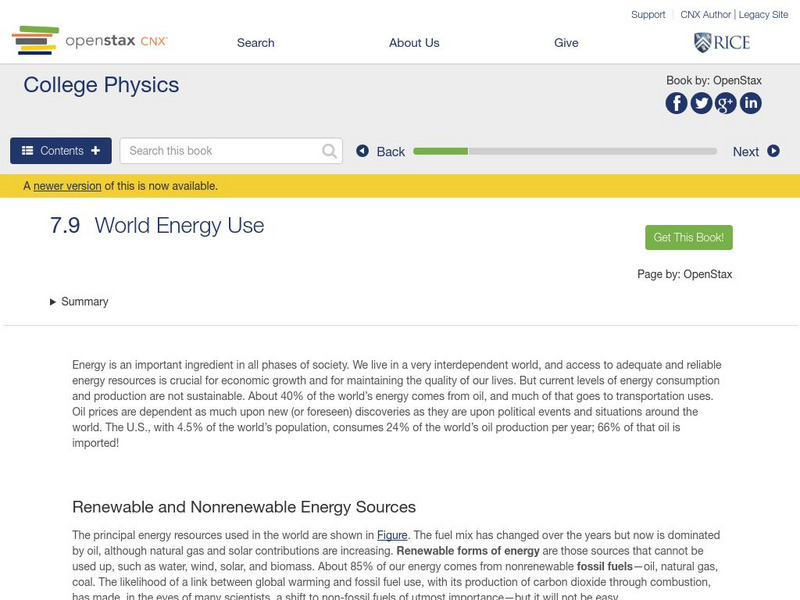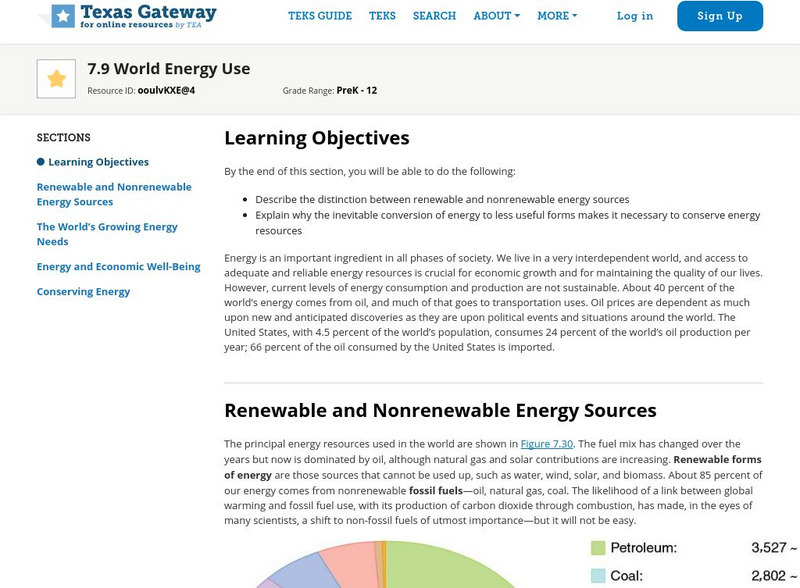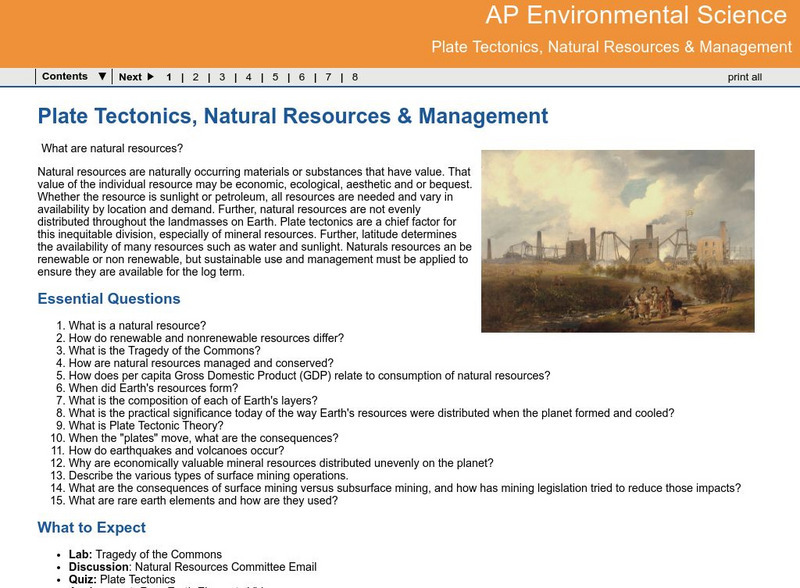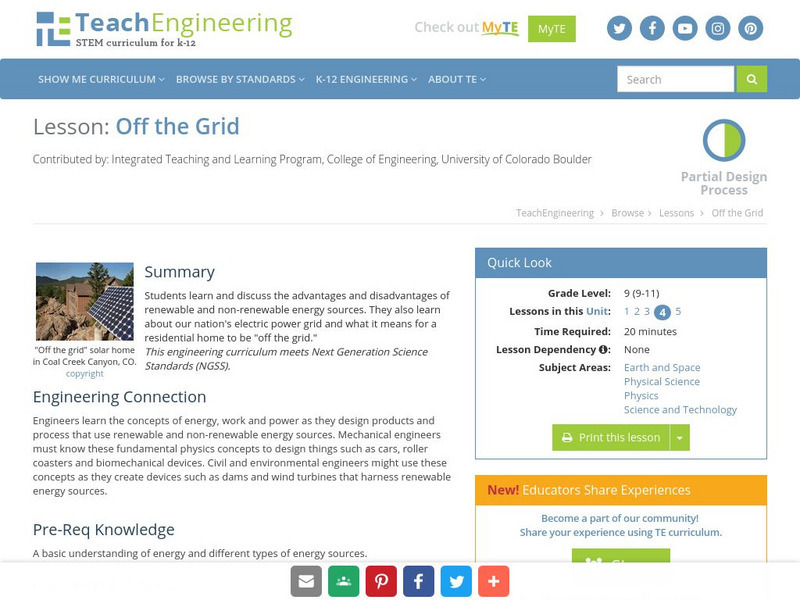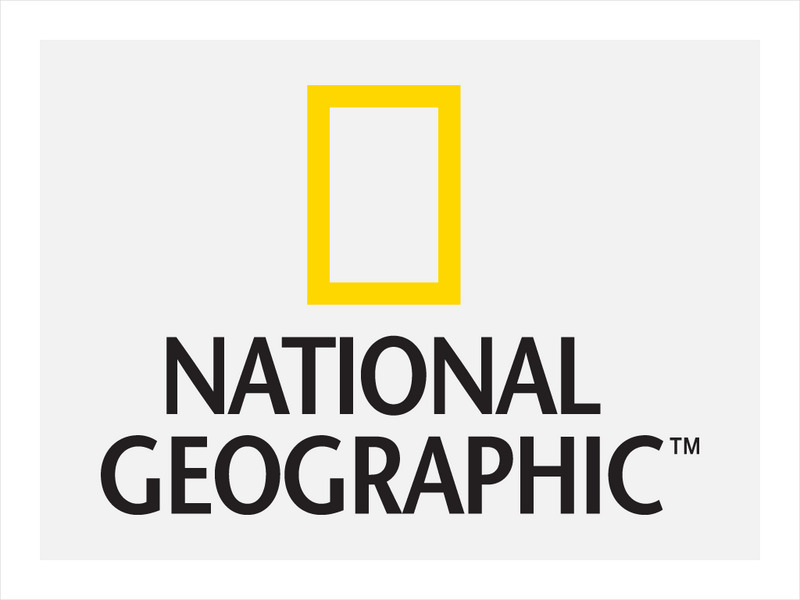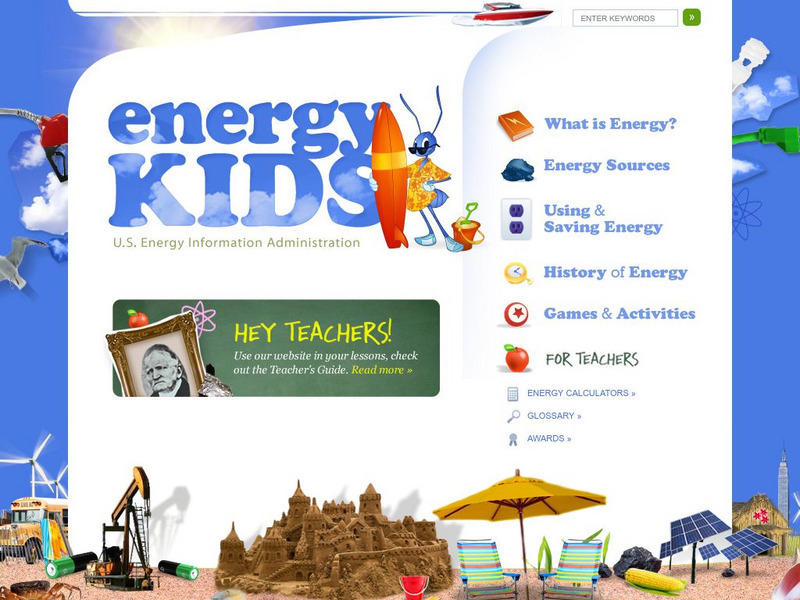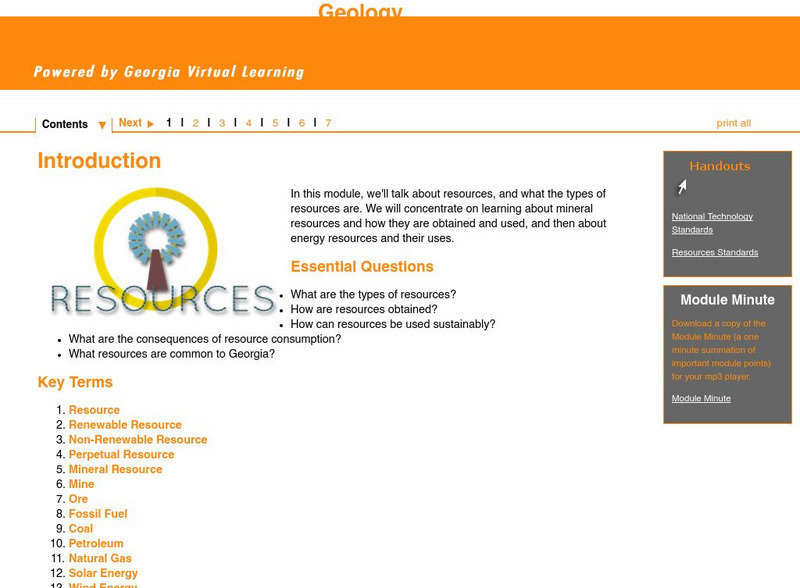Canada Science and Technology Museum
Canada Science and Technology Museum: Background Information for Energy
Energy! What do you know about it? Use this terrific site to find out everything about it through a series of Q&As. Educators will find useful lesson plans at the related Teacher's site.
Annenberg Foundation
Annenberg Learner: The Habitable Planet: Energy Challenges
With this resource, users join investigators in the exploration of humans' use of and dependence on the many energy resources. Learn about new technologies such as carbon capture and sequestration as an alternative to reduce our carbon...
NC State University
Ncsu: What Will Be Left of Earth's Non Renewable Resources?
An interactive graph that predicts how many years until more than two dozen natural resources (e.g., chromium, oil, tin, coal, etc.) are depleted, based on current production rates or production that grows each year. Use the slider at...
US Energy Information Administration
U.s. Eia Energy Kids: Forms of Energy: Sources
Article explains what is meant by renewable and nonrenewable sources of energy.
US Energy Information Administration
U.s. Eia Energy Kids: Energy Basics
Learn about the definition of energy, the forms that it comes in, and the difference between renewable and nonrenewable sources.
Energy4Me
Energy4me: Energy Sources of the World [Ppt]
Learn about the many different energy resources available from our Earth. Find out the pros and cons of each type: both renewable and nonrenewable.
Other
Wikibooks: High School Earth Science/use and Conservation of Resources
Begins with a description of a case of missing plant nutrients that have been affecting Monongahela National Forest in West Virginia. Lists some of the benefits to humans of the natural resources in such a park. Then explains the...
E-learning for Kids
E Learning for Kids: Science: Denmark: What Are Natural Resources and Why Are They Important?
Learn about natural resources, both renewable and nonrenewable, and the impact humans have on the natural world.
Other
Biology Discussion: Natural Resources: Depletion Reasons, Types and Conservation
Discusses how the the natural resources of the world are being depleted at an alarming rate, and that humans depend on them for their survival. Elaborates on four main causes of resource depletion, and initiatives that could help to...
University of Illinois
University of Illinois Extension: Schools Online: Knowing Your World: Natural Resources
This brief article emphasizing the importance of renewable and non-renewable resources urges readers to appreciate and not waste the earth's natural resources. Following the article, there is an activity, a "Mineral Search," through...
TeachEngineering
Teach Engineering: Energy Conservation
Students are introduced to the idea that energy use impacts the environment and our wallets. They discuss different types of renewable and nonrenewable energy sources, as well as the impacts of energy consumption. Through a series of...
OpenStax
Open Stax: World Energy Use
From a chapter on work and energy in a Physics textbook. This section of the chapter covers the difference between renewable and nonrenewable energy resources, the growth in the world's energy consumption, and the link between energy use...
Georgia Department of Education
Ga Virtual Learning: Ap Environmental Science: Energy Use and Energy Sources
This interactive learning module will focus on the fundamentals of energy and energy sources, renewable and nonrenewable, that support the human population. Students will also explore our dependence on nonrenewable fossil fuels to...
Texas Education Agency
Texas Gateway: Ap Physics: World Energy Use
By the end of this section, you will be able to describe the distinction between renewable and nonrenewable energy sources and to explain why the inevitable conversion of energy to less useful forms makes it necessary to conserve energy...
Georgia Department of Education
Ga Virtual Learning: Environmental Science: Mineral and Energy Resources
Students explore the topics of mineral extraction, renewable and nonrenewable resources, and hazardous wastes in this comprehensive, interactive module.
Georgia Department of Education
Ga Virtual Learning: Ap Environmental Science: Plate Tectonics,natural Resources
Through interactive activities and readings, students learn that natural resources can be renewable or nonrenewable, but sustainable use and management must be applied to ensure they are available for the long term.
TeachEngineering
Teach Engineering: Off the Grid
Learners learn and discuss the advantages and disadvantages of renewable and non-renewable energy sources. They also learn about our nation's electric power grid and what it means for a residential home to be "off the grid."
TeachEngineering
Teach Engineering: Energy
Through nine lessons, students are introduced to a range of energy types--electrical, light, sound and thermal-as well as the renewable energy sources of wind, hydro (water) and solar power. Subjects range from understanding that the...
American Geosciences Institute
American Geosciences Institute: Energy
Seven hands-on lessons module where students learn about energy. These inquiry-based explorations investigate where energy resources come from and how they are converted into electricity, how fossil fuels form, the importance of...
National Geographic
National Geographic: Energy Sources and Energy Use
A brief lesson where students identify energy sources that are renewable and nonrenewable, and discuss their own energy use.
US Energy Information Administration
U.s. Eia Energy Kids
This extensive resource provides information on renewable energy, nonrenewable energy and energy conservation.
eSchool Today
E School Today: Your Cool Basics on Natural Resources
Looks at the two categories of natural resources, what they are used for, their distribution around the world, threats to natural resources, recycling and composting, and conservation.
Georgia Department of Education
Ga Virtual Learning: Human Impact
In this comprehensive interactive tutorial you will learn how we can reduce our carbon footprint by using alternate energy sources.
Georgia Department of Education
Ga Virtual Learning: Geology Resources
In this interactive tutorial you will learn about geological resources. Learn what the types of resources are and concentrate on learning about mineral resources and how they are obtained and used, and then about energy resources and...


